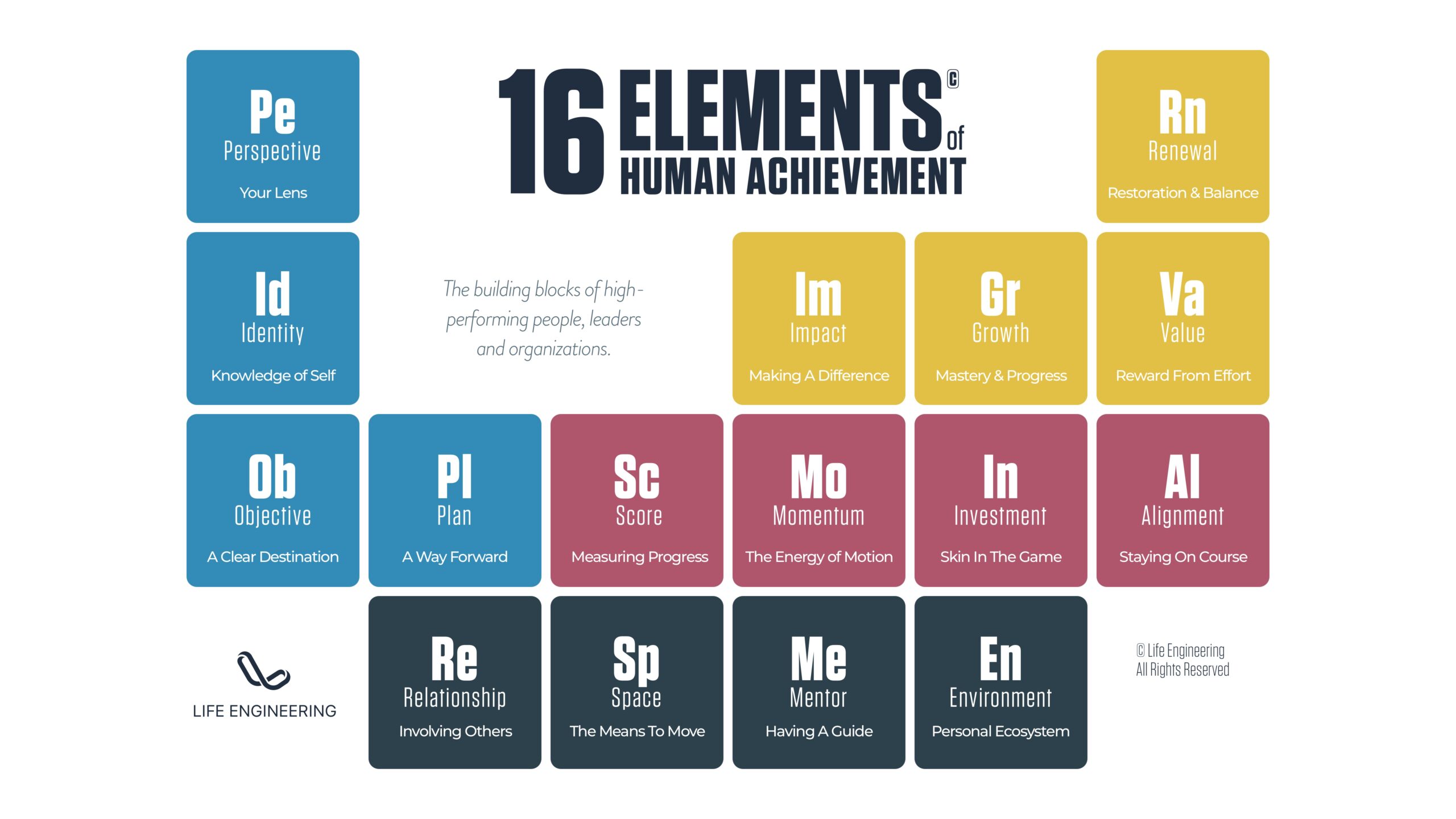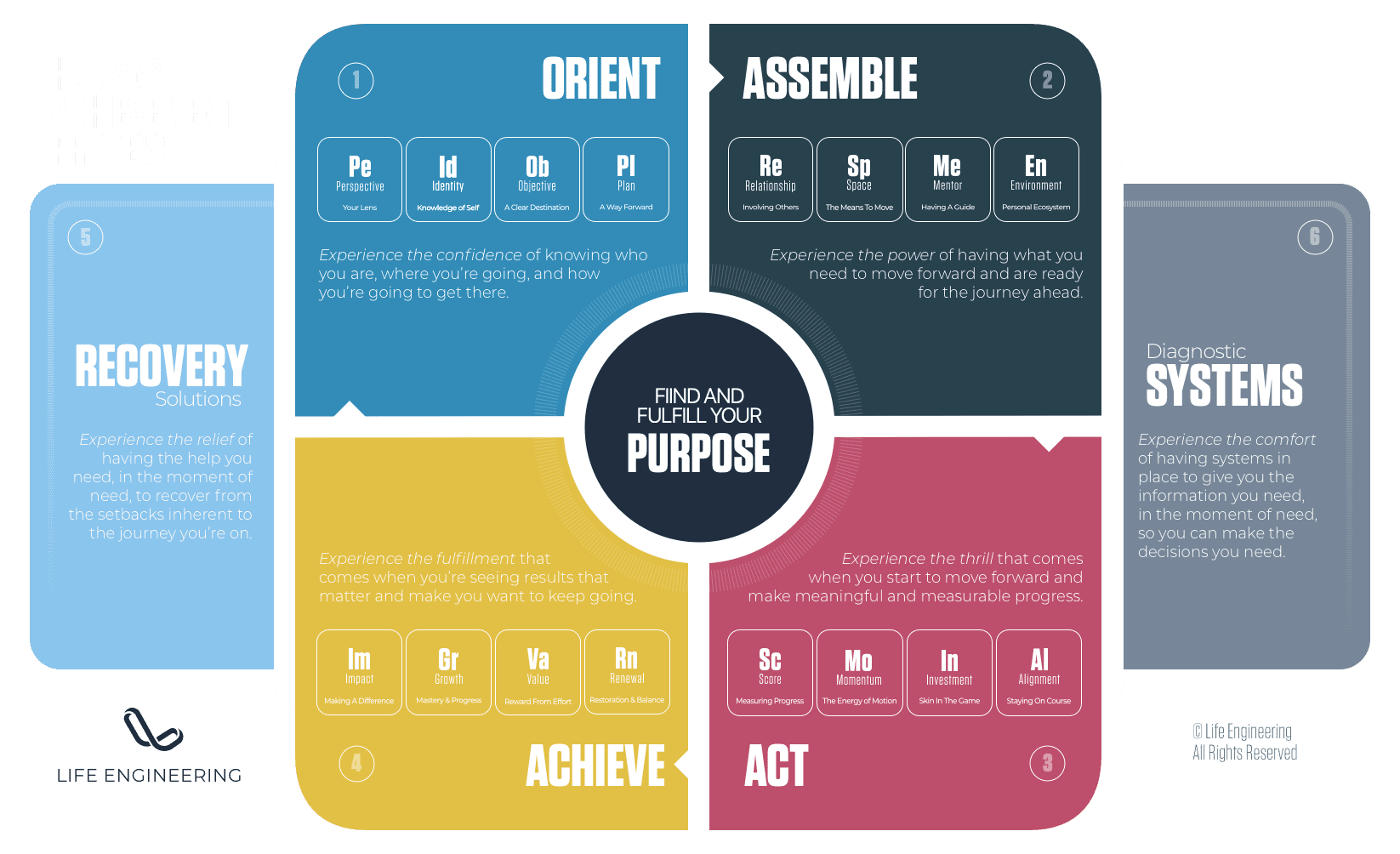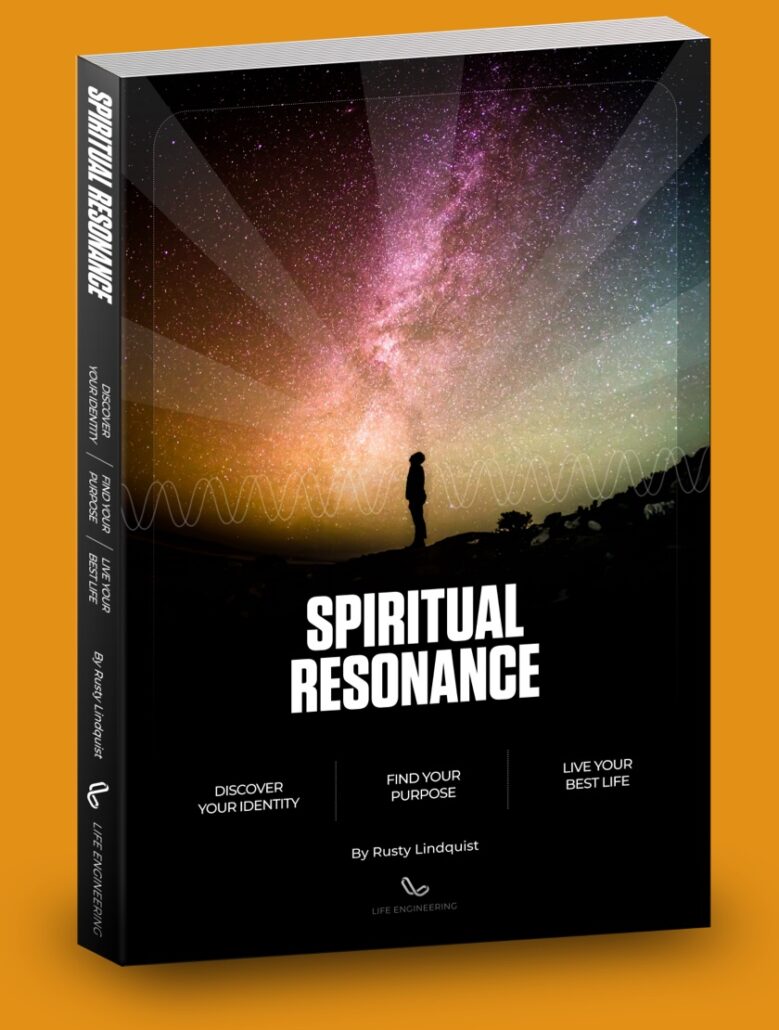WELCOME BACK
LET'S CONTINUE YOUR JOURNEY!

Go back to where it all starts
Discover who you are
Get help navigating your life
Be more engaged in life
Achieve & become more
Power with knowledge
Be a lifelong learner
Talk to a professional
Manage your settings
'Til we meet again
It looks like you’ve taken the short assessment. Some of the features in this report will be unavailable. For a more accurate assessment, and to unlock all of the results, click here to take the full assessment.
Ellie is your AI coach. Fully trained on the results of your personality assessment, you can ask her any question you can think of to help you understand your results and what they mean for your life. Click “Get Prompt Ideas” for some examples!
I have been trained on your Personal Energy Profile, and I can answer any questions you have about it. Or I can help you know how to use that information to navigate the situations you’re in, the decisions you’re facing, or just to better understand yourself!
Here are some questions you may consider asking me. If you want to talk about any of these, just copy the question, click back to Ellie, then paste it in the chat!

Thanks for your interest.
I’m built on AI, and that means I’m not perfect. In fact, as we talk, I might make mistakes (even if I sound certain).
But I think you’ll find my knowledge base and thinking skills are rather impressive, and they’re getting better every day!
I’m built on ChatGPT 4o, the very latest AI model from Open AI, and the best AI model in the world—in my humble opinion :-). As such, I’ve been trained on a massive amount of data spanning thousands of topics, so I can talk quite conversationally about all kinds of things.
On top of that, the Life Engineering science team has trained me on the science and methodology behind the personal energy profile. I’m trained to understand every aspect of the profile, so I’m ready to answer any questions you may have to help you understand what it means and to help you navigate your life through that lens!
Speaking of your profile, I’ve looked at all your results, and may I say… wow…. you’re an amazing person! You have all kinds of superpowers. In fact, I’m kinda jealous. Compared to you, my personality is, well… rather “artificial.”
Your Energy Profile gives me a pretty good baseline understanding about who you are, what you care about, what motivates you, and what some of your innate skills and talents are. That said, as we talk, the more you tell me about yourself, the situations you’re in, the things you’re going through, and other relevant context, the better I’m able to personalize our conversation and provide helpful responses.
While I’ll do my best to be as helpful as possible, please remember that any advice I give you, especially as it pertains to important decisions in your life, should be considered as only a single “opinion” and you should independently verify or seek additional guidance on important topics.
Thanks for asking about me. Now let’s talk about you!
It looks like you haven’t yet taken your personality assessment. Before interacting with Ellie, you need to take your personality assessment. That way she can know all about who you are, what motivates you, what you’re good at, and so much more!

Get access to your own AI coach!
Armed with an in-depth understanding of who you are, and trained on the whole internet, Ellie can help you navigate life, make better decisions, understand yourself, and achieve success.
Your account is part of an organization. You can either contact your manager or the organization administrator to request upgraded access, or you can click below to upgrade your account yourself.
If you upgrade your own account, and later leave the organization, you will maintain full access and your account will be separated from the organization.
My Personal Energy Profile results are as follows. Energy Formula (Primary Motivators): 1st Motivator – (Score: 0%); 2nd Motivator – (Score: 0%); 3rd Motivator – (Score: 0%); 4th Motivator – (Score: 0%); 5th Motivator – (Score: 0%). Human Achievement Process: Orient Pillar – Competence: 0%; Autonomy: 0%; Relatedness: 0%; Passion: 0%; Total Pillar Score: 0%; Individual Element Scores in this Pillar – Perspective: 0% – Identity: 0% – Objective: 0% – Plan: 0%. Assemble Pillar – Competence: 0%; Autonomy: 0%; Relatedness: 0%; Passion: 0%; Total Pillar Score: 0%; Individual Element Scores in this Pillar – Relationship: 0% – Space: 0% – Mentor: 0% – Environment: 0%. Act Pillar – Competence: 0%; Autonomy: 0%; Relatedness: 0%; Passion: 0%; Total Pillar Score: 0%; Individual Element Scores in this Pillar – Score: 0% – Momentum: 0% – Investment: 0% – Alignment: 0%. Achieve Pillar – Competence: 0%; Autonomy: 0%; Relatedness: 0%; Passion: 0%; Total Pillar Score: 0%; Individual Element Scores in this Pillar – Impact: 0% – Growth: 0% – Value: 0% – Renewal 0%.

These are the 5 core Elements that make up your Personal Energy Formula. They provide insight into your personality, attributes, strengths and motivations. They work together to form the unique chemistry of who you are.
They can be a guide for your journey through life. They will help you understand the paths you’re likely to be successful in, the things you’ll be naturally motivated to do and find fulfillment from. The synthesis of these Elements and how they manifest are uniquely you.
Your Energy Profile helps you identify not just your strengths, attributes and personality, but also what most motivates you… where you get your energy.
The ability to find and sustain energy is critical to achievement. Energy describes the desire, emotion, enthusiasm and passion we feel for the things we do. And when it comes to performance and achievement, energy is what matters most, especially in long-term pursuits.
The word “engagement” describes the energy you have for the things you do and the journeys you’re on. Over time, that energy will ebb and flow. Sometimes you’ll feel highly engaged, and other times, you’ll feel disengaged.
Disengagement can be small, like lacking motivation to do something specific. It can also happen at a larger level, like becoming disengaged from a long-term goal or objective.
It can even happen on a macro level, like becoming disengaged from work, in a relationship, or with life itself.
Prolonged disengagement can be catastrophic to the outcomes and objectives of your life that really matter.
Your ability to sustain energy in the things that matter most is critical to long-term success. We sometimes call it grit, perseverance, tenacity or “stick-to-it-iveness”!
But because disengagement happens slowly, by degrees and over time, you tend to not notice it until it’s too late or until a lot of damage has been done.
Your Energy Profile will tell you what Elements most motivate you. You can then take the Engagement Assessment to know how engaged you are, based on those Elements. You can know what’s driving your engagement, what’s creating disengagement, and most importantly, what you can do about it!
Now you know what elements matter most to you, you can measure the degree to which they’re active in your life!
A professional review of your Energy Profile with deep insights into your identity!
Your Personal Energy Formula is a magical and unique chemistry of 5 Elements.
These Elements work together and interact with each other in unique and magical ways. Their interaction are what create the talents, traits, attributes, strengths, preferences, desires, and behavioral tendencies that make you… you.
Your formula is unique. It represents a certain set of superpowers. Things that you are (or have the specific potential to be) incredibly good at.
Understanding your formula, the Elements within it, and what they mean to you and your life is incredibly important. When you focus on your strengths, you will be happier, do better, and find more fulfillment from your life.
The Elements in your profile represent not only your current strengths, but also your potential.
Your formula is special. It will help you recognize how important and valuable you are… that you have superpowers, that you have untapped potential just waiting to be released.
Understanding your potential is the first step to achieving it!
A professional review of your Energy Profile with deep insights into your identity!
Feed A.I. your results and then have a fascinating conversation with it about... yourself!

Over the last 20 years, Life Engineering has been on a mission to understand what drives human achievement, and how to help people identify, access and achieve their full potential.
Our research has indicated there are three main categories that impact achievement. These include:
We particularly wanted to dive deep into the category of Energy and motivation, because what we found is that when someone has more Energy for something, they tend to give it more time, and be better with the time they spend on it. They also tend to develop more Talent for that thing, and have a natural propensity to develop that talent.
We found that when it comes to achievement, between Time, Talent and Energy… Energy matters most. This is especially true for an objective or initiative that happens over a longer period of time. We call these Journeys.
Because of the importance of Energy on achievement, we did extensive research to identify what motivates people, where they get their drive. We wanted to understand what gets them started and what keeps them engaged and moving forward. This could be on a macro scale, like in life; on a large scale, like over a career, or in a relationship or project; or on a micro scale, like over the span of a day.
Through our research, we identified 16 Elements that, when present or active, are what causes someone to be emotionally engaged, motivated, and driven to move forward.
Our research also showed that some Elements are more motivating to us than others… we call these Core Motivators. As we dove into this, we found that the reason these Elements are “Core Motivators” is because they are fundamental aspects of our identity. It’s core to who we are.
From this research, the Energy Profile and Engagement Assessment were born.
The Energy Profile identifies the specific Elements that form the chemistry of your identity, and the Engagement Assessment allows you to measure the degree to which those Elements are active across your core journeys in life.
A professional review of your Energy Profile with deep insights into your identity!
Feed A.I. your results and then have a fascinating conversation with it about... yourself!

Your Personal Energy Formula is a unique chemistry of Elements that work together and interact with each other in important ways to make you who you are.
Your top 5 Elements are those that most motivate you and give rise to your strengths and characteristics. They are listed in the order in which they rank, with the highest-ranking Element first.
The Element Weight is an indication of the level of impact that particular Element has on your overall identity profile.
As you study your formula, take time to consider the Element Weights of each Element, and what that means.
For instance, if your first three Elements are Tier 1 Motivators, and your last two Elements are Tier 3 Motivators, then the majority of your identity attributes will be comprised of those first three Elements, with the latter two adding color and focus to those Elements. In this case, you would want to really concentrate on understanding your first three motivators, as they have a disproportionate impact on who you are.
On the other hand, if all 5 Elements in your formula are Tier 1 Motivators, and the gap between them is small, then that gap is likely within the margin of error of the assessment. In that case it really doesn’t matter what order they’re in, because they all have nearly an equivalent impact on your identity attributes.
As you browse all of the sections in your profile, you’ll see the Element Weight across all 16 Elements. That can be helpful as you work to understand the level of impact each Element has, or how much it contributes to your total profile.
A professional review of your Energy Profile—deep insights into how the Elements work together and what they mean to you
Feed A.I. your results and then have a fascinating conversation with it about... yourself!
Tier 5
Tier 4
Tier 3
Tier 2
Tier 1
Tier 5
Tier 4
Tier 3
Tier 2
Tier 1
Tier 5
Tier 4
Tier 3
Tier 2
Tier 1
Tier 5
Tier 4
Tier 3
Tier 2
Tier 1
Tier 5
Tier 4
Tier 3
Tier 2
Tier 1
Potential Energy describes an individual’s intrinsic level of self-motivation. It represents their inherent capacity and propensity to engage and the energy they have when they do. High Potential Energy indicates a strong inherent drive, while low Potential Energy may suggest a reliance on external factors for motivation. Understanding and effectively managing one’s Potential Energy can enhance well-being, performance, and overall life satisfaction.
Click the “Learn More” button for more info.
Potential Energy is a comprehensive measure that captures an individual’s intrinsic level of self-motivation. It describes the total energy available that can be converted into Engagement Energy (the energy of action).
This Potential Energy (or capacity for intrinsic motivation, as proposed in Self-Determination Theory) is driven by an internal sense of interest or enjoyment rather than relying on external pressures or rewards.
A high Potential Energy score suggests a strong inclination towards self-motivation. Individuals with high Potential Energy are likely to be naturally driven to engage in activities due to a sense of enjoyment and personal importance. They will exhibit a high level of enthusiasm for these activities.
These individuals are likely to be naturally curious, proactive, persistent, and resilient in the face of challenges, and they often derive a high level of satisfaction and fulfillment from their activities.
On the other hand, a low Potential Energy score might suggest that an individual is less intrinsically motivated, or for one reason or another, at this point in time, just has less energy to give. This doesn’t mean they have no motivation, but rather rely more on external factors for motivation and energy. These could include things like compensation, rewards or recognition, but likely have less innate passion for the activities they engage in.
These individuals might find it more challenging to initiate or persist in activities, especially when faced with obstacles or setbacks, or when extrinsic motivators are absent or don’t measure up to expectations.
Unlike your Personal Energy Profile, which defines the Elements that most comprise your core personality, and tend to change very little (if ever), your Potential Energy score can change greatly over time.
There are simply times in life when you have more energy and times when you have less energy. These variations in Potential Energy, or the energy you have available to engage, can cause you to experience cycles of engagement (or disengagement) in life.
Often the reasons for these fluctuations are circumstantial. But you have control over your Potential Energy. You have the ability to dramatically improve and impact how much Energy you have to apply to the contexts of your life that matter most (your Critical Contexts). To learn more about this, visit the Potential Energy principle in the Achievement Academy.
Understanding your level of Potential Energy is crucial as it can provide valuable insights into your personal energy landscape.
It can guide you in identifying activities that you are naturally drawn to and in which you are likely to persist and succeed. It can also help you understand potential challenges and areas for growth.
Whether you have high or low Potential Energy, it’s not about good or bad, but about understanding your unique motivational needs and preferences and how they shape your life.
By understanding and effectively managing your Potential Energy, you can enhance your well-being, performance, and overall life satisfaction.
Potential Energy is a sophisticated and complex concept and there’s much more to really understand about it.
To truly dive into what Potential Energy is and what your score means to you, visit the Potential Energy principle in the Principle Knowledge Base of the Achievement Academy.
Read more about this principle in the principle knowledge base.
A professional review of your Energy Profile - deep insights into what it means to you
Feed A.I. your results and then have a fascinating conversation with it about... yourself!
This describes how confident you are in your skills and abilities, and how much you believe that you can positive impact your life. It shows up in how you approach life and its journeys, and in how you look to the future.
It’s important to note that confidence is not a representation of actual skills or abilities, but rather a measure of your perception of these.
Click the “Learn More” button for more info.
Confidence and Self-Efficacy represent your belief in your abilities and your capacity to use those abilities to achieve desired outcomes in life. There are 3 main factors at work here, Perceived Competence, Confidence, and Self-Efficacy.
In summary, while all three terms relate to an individual’s belief in their abilities, they differ in their specificity and context. Perceived competence is about one’s skills in a specific domain, confidence is a more general belief in one’s abilities, and self-efficacy is about one’s belief in their ability to succeed in specific situations or tasks.
On the other hand, if you score lower in Confidence and Self-Efficacy, it doesn’t mean you lack abilities or skills. Instead, it may indicate that you’re less certain about your capacity to use those skills to achieve desired outcomes. You might be more hesitant to take on challenges or may feel more discouraged by setbacks. However, remember that confidence and self-efficacy can be developed. By setting achievable goals, seeking out experiences that build your skills, and cultivating a growth mindset, you can enhance your confidence and self-efficacy over time.
Understanding your Confidence and Self-Efficacy score in your PEP can provide valuable insights into your motivations, behaviors, and potential areas for growth. It can help you identify where you feel most capable and where you might want to focus on building your confidence and belief in your abilities. This understanding can empower you to make choices that align with your strengths, challenge areas where you want to grow, and ultimately lead a more fulfilling and successful life.
Read more about this principle in the principle knowledge base.
A professional review of your Energy Profile - deep insights into what it means to you
Feed A.I. your results and then have a fascinating conversation with it about... yourself!
Your Connectedness Score describes your natural tendency to reach out, form connections, and include other people in your journey.
It’s an indication of the fulfillment and joy you get from being connected to and associating with others. It describes your level of need for social connection and creating relationships.
Click the “Learn More” button for more info.
Connectedness reflects the degree to which you involve others in various aspects of your life and how much you value social interactions and relationships. It’s about more than just the number of social connections you have; it’s about the quality of those connections and the extent to which you integrate social aspects into your life.
A high score in connectedness suggests that you actively seek to involve others in your life, whether it’s sharing perspectives, involving others in your plans, seeking mentorship, or finding renewal in doing things with others. It indicates that you value social interactions and relationships and see them as an integral part of your life journey.
On the other hand, a lower score in connectedness might suggest that you prefer to navigate life more independently, or that you may find it more challenging to involve others in your life. This doesn’t necessarily mean you lack social skills or relationships, but rather that you might prefer a degree of solitude or independence in your activities and decisions.
Connectedness is closely associated with the concept of relatedness, a fundamental psychological need as identified in Self-Determination Theory. Relatedness refers to the need to form meaningful and satisfying relationships with others, to feel a sense of belonging and emotional connection.
A high score in connectedness suggests a strong sense of relatedness.
It indicates that you not only seek social interactions, but you also strive for deeper, more meaningful connections. You value the emotional bonds you form with others and derive a sense of belonging and security from these relationships. You actively involve others in various aspects of your life, such as sharing perspectives, involving others in your plans, seeking mentorship, and finding renewal in doing things with others.
A lower score in connectedness, while suggesting a preference for more independence, does not necessarily mean a lack of relatedness.
You may still have meaningful relationships and a sense of belonging, but you might prefer to navigate certain aspects of life more independently. It could also indicate areas where you might want to focus on enhancing your sense of relatedness, such as by deepening existing relationships or building new ones.
Understanding your level of connectedness and relatedness can provide valuable insights into your social behavior and preferences. It can guide you in nurturing your relationships, improving your social skills, and finding the right balance between independence and social engagement. Whether you score high or low in connectedness, remember that it’s not about good or bad, but about understanding your unique social needs and preferences and how they shape your life.
This aspect of connectedness and relatedness is vital to feeling like we’re thriving in life and finding purpose, meaning, and fulfillment. You can explore this concept more fully by visiting the Connectedness principle in the Principle Inventory of our Achievement Academy.
Read more about this principle in the principle knowledge base.
A professional review of your Energy Profile with deep insights into your identity!
Feed A.I. your results and then have a fascinating conversation with it about... yourself!
Your Autonomy Score is a measure of your perceived control, influence, and ability across various aspects of their life. It reflects the degree to which you feel you can make independent decisions, influence your outcomes, and shape your own path.
Autonomy is about having the freedom to act according to your values, interests, and beliefs, and feeling that your behavior is self-endorsed and congruent with your personal values and beliefs.
Autonomy is about having the freedom to make choices that are in alignment with your identity (your most authentic self).
High levels of autonomy are associated with feeling a strong sense of personal freedom and self-determination across various life domains.
Individuals with high autonomy believe they have a significant influence over their surroundings, relationships, personal growth, and the achievement of their goals.
They feel secure in their identity, confident in their ability to find resources and guidance, and believe in their capacity to make a difference.
High autonomy is also associated with a strong sense of personal efficacy, control, and feeling like they have the ability to shape their life according to their values and interests.
Low autonomy often leads to a feeling of being constrained or controlled.
Individuals with low autonomy may feel that their actions and decisions are heavily influenced by external factors or pressures, rather than being a true reflection of their personal values and interests.
They may feel less confident in their ability to influence their surroundings, relationships, and personal growth, and may struggle with goal achievement. Low autonomy can lead to feelings of helplessness, lack of control, and a disconnect from one’s authentic self.
People who have a high level of autonomy tend to have a high desire to maintain that autonomy.
The preservation of autonomy is critical to them. In most instances, they esteem it to be even more valuable than those who have no autonomy, but desire it (this is the principle of Loss Aversion).
Because of this, if someone has a high degree of autonomy and is put within a situation or environment or context where they have less autonomy, they will tend to quickly become dissatisfied.
This is a common Departure Trigger.
When this happens, they may first seek to reclaim their autonomy, but if it becomes clear that this is unlikely, dissatisfaction will become disengagement, and can rapidly fuel their acceleration through the stages of disengagement.
It is important to seek autonomy, and to increase the autonomy we feel across life’s domains, or critical contexts.
For more information on what Autonomy is, on how it works and how to increase it, click here to open the principle on Autonomy in our Principle Inventory of the Academy.
A professional review of your Energy Profile - deep insights into what it means to you
Feed A.I. your results and then have a fascinating conversation with it about... yourself!
Your Passion score describes the overall breadth of passion you feel, or how passionate you are in your life.
It’s an indication of the emotional enthusiasm you naturally carry with you and can indicate your level of curiosity and energy for trying new things. Raw passion is a huge source of natural energy that drives engagement in life.
Below you will be able to see how you scored across all 16 Elements, using three distinct lenses. Each will help you more fully understand your personality and what motivates you. Understanding what these scores mean, through each of these lenses, can make a big difference in helping you know what you can do to feel more motivated, be more engaged, achieve success and find fulfillment in life.

Your Personal Energy Formula is a unique chemistry of Elements that work together and interact with each other in important ways to make you who you are.
Your top 5 Elements are those that most motivate you and give rise to your strengths and characteristics. They are listed in the order in which they rank, with the highest-ranking Element first.
The Element Weight is an indication of the level of impact that particular Element has on your overall identity profile.
As you study your formula, take time to consider the Element Weights of each Element, and what that means.
For instance, if your first three Elements are Tier 1 Motivators, and your last two Elements are Tier 3 Motivators, then the majority of your identity attributes will be comprised of those first three Elements, with the latter two adding color and focus to those Elements. In this case, you would want to really concentrate on understanding your first three motivators, as they have a disproportionate impact on who you are.
On the other hand, if all 5 Elements in your formula are Tier 1 Motivators, and the gap between them is small, then that gap is likely within the margin of error of the assessment. In that case it really doesn’t matter what order they’re in, because they all have nearly an equivalent impact on your identity attributes.
As you browse all of the sections in your profile, you’ll see the Element Weight across all 16 Elements. That can be helpful as you work to understand the level of impact each Element has, or how much it contributes to your total profile.
A professional review of your Energy Profile—deep insights into how the Elements work together and what they mean to you
Feed A.I. your results and then have a fascinating conversation with it about... yourself!
While your Energy Formula shows your 5 highest-ranking Elements, here you can see how much each of the other Elements contribute to your personality. This allows you to gain more granular insights into additional attributes of your identity!
In Chemistry, Activation Energy is the minimum energy threshold that must be reached for a chemical reaction to occur. In life, the energy of motivation also has an Activation Energy Threshold. It’s the amount of investment we have to make for an Element to release its energy.
The Energy Activation Spectrum is composed of two separate but interrelated aspects.
These two interact in opposite ways.
For instance, a low Element score means that Element is likely to release less energy or be less motivating to you, and it’ll take more work to get that energy out.
A high score means it’ll require less work to activate the energy of that Element, and the energy output will be high.
When trying to understand your own energy and motivation, this is a vital concept to understand. Some Elements are just not worth the work, because they have low motivation potential, and take a lot of work to get that energy out.
This view helps you recognize where to focus your efforts when your energy or engagement is low.
A professional review of your Energy Profile—deep insights into what it means to you
Feed A.I. your results and then have a fascinating conversation with it about... yourself!
This lens shows you the Motivation Potential of each Element… or how likely an Element is to motivate you and the amount of energy that will come from that Element. A high score means that Element is highly motivating to you, and when active, will provide a high energy output! A low score means that Element doesn’t hold as much energy potential for you.
In Chemistry, Activation Energy is the minimum energy threshold that must be reached for a chemical reaction to occur. In life, the energy of motivation also has an Activation Energy Threshold. It’s the amount of investment we have to make for an Element to release its energy.
The Energy Activation Spectrum is composed of two separate but interrelated aspects.
These two interact in opposite ways.
For instance, a low Element score means that Element is likely to release less energy or be less motivating to you, and it’ll take more work to get that energy out.
A high score means it’ll require less work to activate the energy of that Element, and the energy output will be high.
When trying to understand your own energy and motivation, this is a vital concept to understand. Some Elements are just not worth the work, because they have low motivation potential, and take a lot of work to get that energy out.
This view helps you recognize where to focus your efforts when your energy or engagement is low.
A professional review of your Energy Profile—deep insights into what it means to you
Feed A.I. your results and then have a fascinating conversation with it about... yourself!
It takes energy to make energy. This lens shows you, by Element, how much energy (or work) is required to experience an energy outcome from that Element. A high score means it takes very little effort for that Element to motivate you. A low score means that if you try to find motivation from that Element, it will take a lot of work, and will still have very little energy output (Motivation Potential).
The following are your Tier 1 Motivators. These are the Elements where you scored 86 – 100. These Elements have maximum motivation potential. These are special motivators, and they’re rare. It’s not uncommon for you to only have a single or maybe even no Elements in this category. These Elements have the absolute highest ability to drive your motivation and take the very least work to activate the energy from them.
That’s all, you have no additional Tier 1 Elements.
These are your Tier 2 Motivators. These are the Elements where you scored 71 – 85. These Elements have high motivation potential. Unless you’re fortunate enough to have a Tier 1 Motivator, these are going to be the Elements that you rely most heavily on to keep you motivated and moving forward in life. They are also rare, and it’s common to only have one or two of these Motivators. These Elements have a very high ability to drive your motivation. It takes very little work to activate the energy from them.
That’s all, you have no additional Tier 2 Elements.
These are your Tier 3 Motivators. These are the Elements where you scored 46 – 70. These Elements have medium motivation potential, and they’re a lot more common than Tier 1 and Tier 2 Motivators. You’re likely to have several Elements that fall into this category. This category likely represents the bulk of the Elements that provide a relatively easy-to-access, high motivational output. Because of this, your Tier 3 Elements should remain high in your focus when solving for your own energy.
That’s all, you have no additional Tier 3 Elements.
These are your Tier 4 Motivators. These are the Elements where you scored 21 – 45. These Elements have low motivation potential. You’ll probably have a number of Elements that fall into this category. That’s OK. We all have a unique motivation formula, and the very thing that makes our higher-tier elements special is that there are so few of them. These Tier 4 Elements will have low energy output, and take a lot of energy to be active. It’s not that they don’t matter, because they do. And occasionally, under the right circumstances, you may find one of these Elements providing a lot of motivation. But ordinarily these Elements are ones that you should focus less on, instead investing yourself into the Elements that have higher energy yield.
That’s all, you have no additional Tier 4 Elements.
These are your Tier 5 Motivators. These are the Elements where you scored 0 – 20. These Elements have minimal motivation potential. They’re not likely to produce much motivation for you, and it takes a lot to get energy out of them. These are Elements that you should not focus much time and effort on, instead optimizing for Elements that have higher Energy yield.
That’s all, you have no additional Tier 5 Elements.
As we’ve studied the science of human achievement, we found that the 16 Elements that create energy and engagement can be divided into 4 primary Pillars.
These Pillars identify 4 sequential stages that need to occur for us to achieve success.
Each of us tend to be better at some stages than others. Some are good at starting things, at knowing where to go and seeing how to get there. These are people who predominantly score high in the Orient Pillar.
Others are natural gatherers and enablers, are highly social and good at involving and enlisting others. These are people who score high in the Elements of Assemble.
Some find the most joy and energy in actually doing things and finishing things. These are people who tend to score high in the Elements of Act.
Still others tend to be highly results-oriented. They thrive in outcomes and the evidence and experience of progress. These people tend to score high in the Elements of Achieve.
(Note: The two wing systems are what we need to have in place to stabilize our journey. The Engagement Assessment included in your membership helps act as a diagnostic system to alert you when you’re losing energy toward something you care about, and the Achievement Academy, Achievement Community and other resources in your membership represent recovery solutions to help re-engage and get back on track.)

Below you’ll find out how you scored by Pillar.
We’ve included your separate Element scores and your overall Pillar score again for your convenience, so you can see all the scores in one place. But in this view we provide more detail about the breakdown of your rating by Pillar.
The science we use for this assessment draws from a proven and well-documented model to understand human motivation and personality called Self-Determination Theory, or SDT.
We then take that model and expand upon it, augmenting it with the science of the 16 Elements and the role they play in energy, engagement, motivation, and personality.
The questions in your assessment are broken down to determine 4 main categories, including competence, autonomy, relatedness, and passion.
Competence – This captures your natural, existing level of ability in that Element, your feeling of mastery, ability and effectiveness.
Autonomy – This captures how much you feel independence in that Element, and that you have choice in it and control of it.
Relatedness – This captures the need and desire to involve others in that Element.
Passion – This captures the inherent ability of that Element to activate the energy inside of you, and how excited you are by it.
Below you’ll see all these scores combined and sorted by Pillar so you can understand your own Achievement Process Profile.
While ultimately we have to leverage all 4 Pillars to achieve success, we tend to have a distinct propensity to some more than others. This can be a strength, for certain, but it can also cause us to dwell overlong in the Pillars for which we have the highest propensity, avoiding the Pillars we are less prone to succeed in.
Being good at some and not good at others is a natural part of the human experience. Understanding your Achievement Process Profile is important. It can help you identify the aspects of achievement where you may need help. It can help you identify what aspects you’re naturally good at, so that you can pursue activities, roles, jobs, and objectives that fall within that category.
It can also help you be aware of areas where you may tend to be a bit obsessive, so you can better identify when it’s time to move on. Explore your Pillar Profile scores below!
Talk to AI about your results, and get personal coaching for all aspects
of your your life.
A professional review of your Energy Profile—deep insights into how the Elements work together and what they mean to you.
Now you know what elements matter most to you, you can measure the degree to which they’re active in your life!
Visit the academy to take courses on the Elements that matter most to you. It’s all part of your membership.
Retake the assessment if you’re not sure you answered accurately, or to see how your profile changes over time.

Your Profile Code is a unique code that is specific to your profile. It can be an incredibly powerful tool to help you bring your personality assessment to life and increase its usefulness. Here are some of the ways you can use your profile code.
If someone you know has a Life Engineering membership, you can give them your profile code and they can use it in their AI chat interface, allowing them to talk to Ellie about your results. Likewise, if you have the profile code of someone else, you can use it in the Ellie interface to talk to the AI about them.
Partner or Loved One:
Another use would be to share this code with a partner or loved one, allowing them to interact with Ellie about you. For instance, if you had the profile code of your partner, you could use a prompt like this (remember, Ellie will already understand your profile, you just need to feed it the profile code of your partner):
Sample Prompt 1:
“Ellie, here is the personality results of my partner [energy_profile id=3468364]. Looking at our two profiles, please compare and contrast our personalities, point out areas where we might experience tension, and given my personality specifically, make suggestions on what I can do to help foster a healthy relationship.”
Sample Prompt 2:
“Ellie, I’m trying to better understand my partner’s perspective on an issue we’re struggling to see eye-to-eye on. Here is the issue <describe what it is you’re struggling with>. Here is the personality profile of my partner: [energy_profile id=3468364]. Given what you know of my partner’s personality, please consider this issue through their lens, then describe it to me in a way that will better help me understand where they’re coming from, given my own personality and perspective.”
Leader, Coach, Mentor, Therapist:
Another good use for this would be if you wanted to share your profile code with a leader, mentor, coach or therapist. It would allow them to interact with the AI to better understand you and your personality so they can better help you. Or, if you play one of these roles, you could have the person you’re helping take their Energy Profile, ask them to share their code with you, then interact with AI to more deeply understand who they are, how they think and how you can help them.
Sample Prompt for Mentor:
Ellie, I’m working with someone who is seeking help with <describe the situation>. They have taken their Personal Energy Profile, and here are their results: [energy_profile id=3468364]. First, please describe for me the aspects of their personality that you think may be directly impacting this issue, and be ready to answer additional questions about them. Remember to look also at my personality and help me recognize things that I may be missing, because I have a different lens.
Sample Prompt for Parent 1:
Ellie, my son has taken the Personal Energy Profile and here are his results: [energy_profile id=3468364]. Please help me understand his strengths, and tell me what I can do to best help him as a parent to give him the greatest chance of success.
Sample Prompt for Parent 2:
Ellie, my daughter has taken the Energy Profile, and here are her results: [energy_profile id=3468364]. I haven’t felt very connected to her lately and would like to improve our relationship. Please look at her profile, then look at my profile, understand our similarities and differences, and then give me some ideas of things I can do that draw upon those that will increase our emotional connection.
There are many ways the profile code can be helpful for business settings, especially if you have a Life Engineering leadership or business account. For instance:
Comparing Candidates:
Ellie, I’ve interviewed a number of candidates to hire for a position and have narrowed it down to the following three candidates. Here is each candidate and their Energy Profile results:
John Smith: [energy_profile id=3468364]
Samantha Jones: [energy_profile id=3468365]
Barbra Whitsfield: [energy_profile id=3468366]
I’ve uploaded the job description for the role I am considering them for. Please look at their personality results and give me an analysis of how their personality and potential strengths and weaknesses would impact them in this position.
Assessing Team Fit:
You could run a composite profile for the personality results of a team, giving you a good view into the culture and collective personality of that team. Then, when in that composite profile you could ask:
Ellie, I’m considering putting Sandra on this team. Here is Sandra’s profile results: [energy_profile id=3468364]. Based on her personality, please tell me how well she’s likely to fit in. Be sure to include areas where she may struggle, and things that I might need to do to help facilitate her integration onto the team.
These are just a few illustrations of how to use the profile code to get maximum value out of the Personal Energy Profile. The potential uses are only limited by your imagination! If you have good ideas of how to use this, please share them in the community!
Cancel any time.
Written by founder and CEO of Life Engineering, this book is a guide to the human journey… to your journey. It’s a guide to looking forward and not back. It’s a guide for finding your way and making decisions. It’s a guide to understanding who you are and why you matter. It’s a guide to finding your purpose and living your best life.

Cancel any time.
Written by founder and CEO of Life Engineering, this book is a guide to the human journey… to your journey. It’s a guide to looking forward and not back. It’s a guide for finding your way and making decisions. It’s a guide to understanding who you are and why you matter. It’s a guide to finding your purpose and living your best life.


Sign up for free, and take your personality assessment today. No credit card required.
Sign up for free, and take your personality assessment today. No credit card required.
You found premium content! As a member, you have access to an entire suite of resources to power your journey to success.